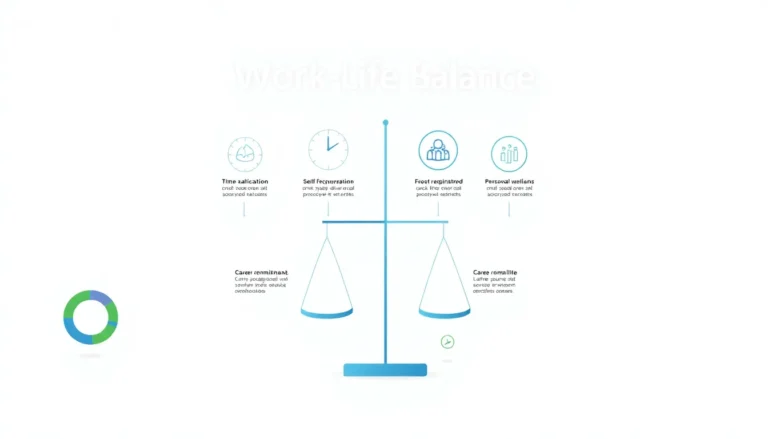Table of Contents
ToggleWork-life balance at McKinsey isn’t just a buzzword: it’s an ongoing journey that resonates deeply with both employees’ ambitions and the company’s expectations. But let’s be honest, navigating this balance can sometimes feel like trying to juggle flaming torches while riding a unicycle on a tightrope. It takes skill, and it’ll probably have you sweating a bit. Yet, McKinsey has made strides to promote a culture that nurtures both personal and professional growth. Let’s jump into how they tackle this intricate dance between work and life, ensuring that no one ends up in the circus tent, or worse, burnt out.
Understanding Work Life Balance at McKinsey

At McKinsey, the concept of work-life balance is integral to the overall employee experience. The firm acknowledges the pressures inherent in the consulting world, extended hours, demanding projects, and high client expectations. But, McKinsey promotes a holistic view of work-life integration, emphasizing that employees should not have to choose between their personal lives and ambitious career goals. Understanding this balance is essential to fostering a sustainable workforce.
Core Principles of McKinsey’s Work Life Balance Approach
McKinsey’s framework for work-life balance centers around two core principles: flexibility and sustainability.
Impact of Company Culture on Work Life Balance
Company culture plays a crucial role in shaping how employees experience work-life balance. At McKinsey, the culture encourages open communication and individual responsibility. Leaders are trained to recognize signs of burnout, fostering an environment where feedback is not just welcomed but actively sought. This cultural aspect enables employees to prioritize both their well-being and work obligations, promoting a healthier synergy.
Flexible Work Arrangements
Flexible work arrangements are another cornerstone of McKinsey’s strategy. Employees often have the option to choose their working hours and locations, empowering them to create a schedule that aligns with their personal lives. Whether it’s telecommuting on Wednesdays or adjusting hours for family commitments, flexibility is designed to reduce stress and increase job satisfaction.
Employee Support Programs
Recognizing that achieving a beneficial work-life balance is not a one-size-fits-all approach, McKinsey offers various support programs. These programs provide resources tailored to diverse needs, ensuring employees feel supported in both professional and personal realms.
Challenges to Achieving Work Life Balance
Even though these supportive measures, challenges persist. Employees often find themselves facing significant client demands and workload pressures that make balance feel elusive. Long hours and the high-stakes nature of consulting can create a hefty toll, leading to the question: How can one truly balance it all?
Client Demands and Workload Pressures
The reality is that client expectations often drive these pressures. McKinsey consultants need to deliver top-tier results while managing their personal lives. It’s a difficult tightrope to walk, and companies must continually adapt their strategies to alleviate pressure where possible.
Navigating Career Progression and Personal Life
Finding a harmony between career progression and personal commitments is critical for sustaining long-term job satisfaction at McKinsey. Many employees grapple with how to climb the ladder while tending to family, hobbies, and self-care.
Tips for Achieving Work Life Balance at McKinsey
Here are a few tried-and-tested tips from seasoned consultants:
- Set Clear Boundaries: Clearly defining work hours can help maintain personal time.
- Use Resources: Leverage mentorship and coaching programs for guidance on navigating dual responsibilities.
- Communicate Needs: Open discussions with managers can often lead to adjustments that benefit well-being.
Initiatives and Resources Available to Employees
McKinsey provides a rich array of initiatives and resources aimed at enhancing employee well-being. These range from mental health support services to workshops on time management and stress reduction. The company invests in resources that help employees cultivate skills necessary for balancing work demands with personal aspirations. By creating an environment where employees can thrive holistically, McKinsey not only retains talent but fosters loyalty and commitment.
Future Outlook on Work Life Balance at McKinsey
Looking ahead, McKinsey is evolving its approach to meet changing employee expectations. With trends increasingly favoring remote work and greater flexibility, the firm is likely to carry out more comprehensive policies to support this evolving landscape. Anticipating these adjustments will not only enhance employee satisfaction but also position McKinsey as a leader in advocating work-life balance within the consulting industry.







